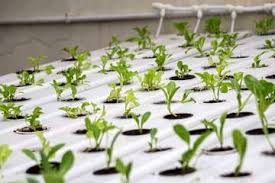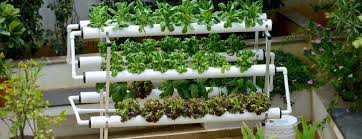The Eco-Friendly Choice: Hydroponic Supplies and Reduced Environmental Impact
As concerns about climate change, resource depletion, and environmental degradation intensify, the need for sustainable agricultural practices has never been more critical. Hydroponic farming, supported by specialized hydroponic supplies, is emerging as an eco-friendly solution that offers significant advantages in reducing the environmental impact of agriculture. By optimizing resource usage, minimizing chemical inputs, and curbing pollution, hydroponic supplies are paving the way for a more environmentally responsible approach to food production.
Hydroponics and Environmental Sustainability
Hydroponics is a method of growing plants without soil, relying on nutrient-rich water solutions to provide essential elements. This approach addresses multiple environmental challenges posed by traditional agriculture, making it a sustainable choice for the future.

Key Hydroponic Supplies for Reduced Environmental Impact
The environmental benefits of hydroponic farming are closely linked to the availability and effectiveness of hydroponic supplies designed to minimize impact. Essential supplies that contribute to reduced environmental impact include:
- Nutrient Management Systems: Hydroponic setups allow precise control over nutrient delivery, minimizing excess use of fertilizers that can leach into soil and water bodies.
- Water-Efficient Systems: Hydroponics employs efficient irrigation techniques that minimize water wastage and reduce the strain on water resources.
- Chemical-Free Cultivation: Hydroponics can significantly reduce or eliminate the need for chemical pesticides and herbicides, leading to fewer chemicals entering the environment.
- Controlled Climate Systems: Hydroponic setups use controlled environments that reduce the need for excessive energy consumption and enable year-round cultivation.
- Recycling and Reuse: Many hydroponic systems incorporate water recycling and nutrient reuse, minimizing the need for fresh resources.
- Localized Production: Urban hydroponic farms bring food production closer to consumers, reducing transportation-related emissions and promoting local food systems.
Positive Environmental Impacts
Hydroponic farming, supported by eco-friendly supplies, offers several environmental advantages:
- Water Conservation: Hydroponics uses significantly less water compared to traditional soil-based agriculture, making it an ideal choice in water-scarce regions.
- Soil Preservation: The absence of soil in hydroponics eliminates soil erosion, degradation, and the need for excessive tilling.
- Reduced Chemical Runoff: By controlling nutrient delivery and minimizing chemical inputs, hydroponics reduces the risk of nutrient runoff polluting water bodies.
- Energy Efficiency: Controlled hydroponic environments can be designed for energy efficiency, reducing the carbon footprint associated with food production.
- Biodiversity Protection: Hydroponic systems can be isolated from natural ecosystems, reducing the risk of introducing invasive species or diseases.
Challenges and Future Prospects
While hydroponic farming offers numerous environmental benefits, challenges such as initial setup costs, technical expertise, and energy consumption in indoor systems must be addressed. However, as technology advances and interest in sustainable agriculture grows, these challenges can be mitigated.
Hydroponic supplies are instrumental in driving a paradigm shift towards eco-friendly agriculture. By minimizing resource use, optimizing nutrient delivery, and reducing pollution, hydroponics represents a promising solution to the environmental challenges associated with traditional farming. As global environmental concerns intensify, hydroponic farming stands as a beacon of hope, offering a path toward sustainable food production that prioritizes the health of our planet.



